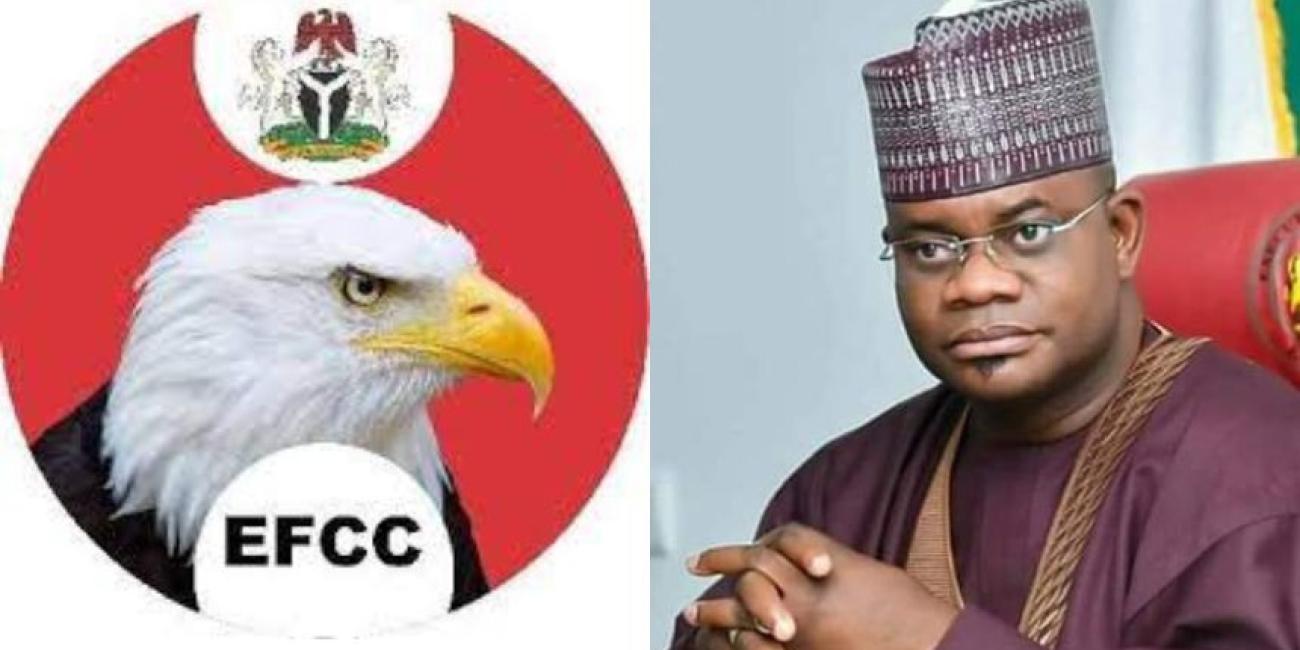The Economic and Financial Crimes Commission (EFCC) has strongly opposed a fresh motion filed by former Kogi State Governor, Yahaya Bello, seeking court permission to travel overseas for medical treatment amid his ongoing ₦80.2 billion money laundering trial.
During Thursday’s proceedings at the Federal High Court in Maitama, Abuja, the anti-graft agency described Bello’s request as an abuse of judicial process and a veiled ploy to flee justice.
Bello’s legal team, led by Senior Advocate of Nigeria, Joseph Daudu, had submitted an application urging the court to allow the ex-governor to travel out of the country for urgent health care. Daudu cited Section 173(2)(a) of the Administration of Criminal Justice Act (ACJA) and the court’s inherent jurisdiction to support the motion.
In his affidavit, Bello claimed his condition could not be adequately treated within Nigeria, despite commissioning a multi-billion naira hospital during his time as governor. He backed his application with a 22-paragraph affidavit and medical documents, including a letter from a consultant cardiologist whose identity and professional standing were later questioned by the EFCC.
“He hasn’t travelled in over eight years,” Daudu argued. “The matter is simply about returning his passport temporarily. He’s not a flight risk, has no criminal record abroad, and will return by the end of August.”
But EFCC lead counsel, Kemi Pinheiro, SAN, sharply criticized the request, alleging Bello had filed similar applications in other courts in an attempt to stall his trial.
“This is a classic case of forum shopping. The application is procedurally defective and constitutes an abuse of court process,” Pinheiro said. He noted that Bello’s sureties were not included in the application a key oversight should the defendant flee.
Pinheiro further cast doubt on the authenticity of the medical report submitted, noting that the conditions mentioned such as mild hypertension and low potassium could easily be managed within Nigeria. “Let him eat banana and pawpaw,” he quipped. “From Abuja to Lokoja is a two-hour drive. He built a ‘world-class’ hospital in Kogi, he should use it.”
He also reminded the court of the seriousness of the charges, noting that the case spans multiple jurisdictions with funds traced to accounts and assets in the U.S., U.K., and Dubai.
Pinheiro warned of the possibility of Bello being placed on an international watchlist, citing the case of Instagram celebrity Hushpuppi as an example of cross-border extradition. “This man is on red alert. If he leaves, he risks being picked up abroad and flown back. He could be Hushpuppied out of Dubai,” he said.
In response, Daudu maintained that the red notice issued against Bello had become irrelevant since the court had assumed jurisdiction over the case. He also argued that it was not necessary to include sureties in the application.
Justice Emeka Nwite has reserved his ruling on the application, with a new date for decision yet to be announced.




